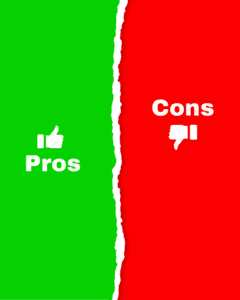Accounts payable (AP) are essential to the seamless operation of any business’s finances. It is the money a business owes its vendors and suppliers for products and services received but not yet paid for. Effective AP management guarantees that the company keeps accurate financial records, avoids payment delay penalties, and maintains a positive relationship with its vendors. However, managing AP internally can be costly, time-consuming, and error-prone, especially as companies expand and transaction volumes grow.
Many businesses choose accounts payable outsourcing as a solution to these problems, in which a third-party service provider processes invoices, approves payments, and oversees general AP operations. Through outsourcing, companies can take advantage of scalable solutions and vendor management experience to increase productivity and cut expenses. However, outsourcing involves potential risks, including loss of control over financial processes and data security issues.
This blog explores the pros and cons of accounts payable outsourcing, helping businesses determine whether outsourcing is the right choice for their financial operations.
Also read: Why More Companies Are Turning to Accounts Payable Outsourcing
Understanding Accounts Payable Outsourcing
The practice of handing over a company’s invoice processing, payment approval, and vendor management to a third-party source is known as accounts payable outsourcing. Businesses collaborate with expert service providers who effectively manage accounts payable processes rather than handling these tasks internally. Without relying on automation, this method helps businesses cut expenses, increase accuracy, and guarantee timely vendor payments.
How AP Outsourcing Works
When a business outsources its accounts payable process, essential financial processes are handled by a third-party vendor. Typically, the outsourced company:
- Receives and processes invoices – Uses specific accounting techniques and invoice tracking to collect, verify, and classify invoices.
- Matches invoices with purchase orders – Verifies accuracy by comparing purchase order data and invoices.
- Manages approvals and payments – This eliminates monitoring when processing payments using accounts payable software that integrates with programs such as Oracle Fusion ERP, Dynamics 365 Business Central, and QuickBooks Cloud.
- Handles vendor management – Monitors payment status, maintains vendor relationships, and guarantees timely payments without the use of automated processes.
- Provides reporting and analytics – Manually created financial reports to help companies make wise decisions and comply with financial laws.
Rather than managing time-consuming administrative duties internally, companies can increase accuracy, enhance financial visibility, and focus on strategic growth by outsourcing accounts payable services.
Common Industries That Get Benefitted By AP Outsourcing
Outsourcing accounts payable services is beneficial for many sectors, especially those that handle complex vendor contracts and high invoice volumes. These sectors include:
- Retail and E-commerce – Efficiently processing payments for various suppliers, guaranteeing timely payments and smooth vendor relations through invoice processing.
- Manufacturing –Managing purchase order reconciliation and bulk invoice processing to guarantee accuracy and avoid payment issues.
- Healthcare – Utilizing AP services to ensure timely vendor payments adhering to industry norms.
- Hospitality and Tourism – Simplifying payments for accommodation establishments, tour operators & service providers, and guaranteeing timely and accurate processing of all payments.
- Technology and IT Services – Outsourcing accounting processes to cut administrative expenses and ensure efficient financial management, allowing companies to focus on their core competencies.
Businesses can save time, enhance accounts payable administration, and focus on core tasks while guaranteeing a seamless accounts payable process by collaborating with a reliable AP outsourcing provider that offers services.
Also read: 17 Industries That Rely on Accounts Payable Services[2025]
Pros and Cons of Accounts Payable Outsourcing
| Pros | Cons |
| Cost Savings – Cost savings are one of the main benefits of outsourcing accounts payable. Salaries, training, office space and infrastructure costs are all part of running an internal AP department. Businesses can reduce operating costs and remove the need to hire full-time employees to process invoices and purchase orders by outsourcing. Businesses can also save money on various financial tools and payment software. Outsourced providers provide affordable alternatives that effectively manage accounts payable and invoicing systems in place of costly AP software. | Loss of Control Over AP Processes – The loss of direct control over critical financial activities is one of the primary disadvantages of outsourcing accounts payable administration. When businesses use an outside vendor to handle invoices for payment, they become dependent on third-party service providers. This dependency can hinder a company’s ability to quickly modify or adapt its accounts payable workflow. If an invoice management process requires a change, businesses may have to wait for the provider’s response, which can delay decision-making. In addition, outsourced suppliers may follow traditional operational practices that do not suit a business’s particular needs. |
| Increased Efficiency and Productivity – Accounts payable outsourcing improves payable processing efficiency by guaranteeing faster invoice and purchase order reconciliation and payment processes. By specializing in bill processing, third-party companies can reduce errors and delays that often accompany in-house management. Through outsourcing, internal teams are not burdened by time-consuming AP activities, freeing them to focus on essential company operations. Allowing key employees to focus on growth plans rather than administrative tasks not only increases productivity but also has a positive business impact. | Data Security and Confidentiality Risks – Sharing private financial data when outsourcing accounts payable services increases the possibility of data breaches and privacy issues. Businesses may be at risk from cybersecurity concerns, hacking attempts, or improper management of financial data by the outsourcing supplier. Businesses should select a reliable and secure AP supplier that employs state-of-the-art security measures and complies with stringent data protection regulations to minimize this risk. Providers of AP services should have robust security procedures in place to protect private information. Businesses should still conduct regular audits to guarantee compliance with industry standards. |
| Access to Expertise and Advanced Technology – Businesses can obtain experienced accounting experts through outsourcing who specialize in managing vendors, tax laws, and financial compliance. These professionals help mitigate risks related to late payments and disputes with invoice vendors. In addition, third-party suppliers perform accounts payable using sophisticated technologies, guaranteeing accurate documentation, vendor coordination, and compliance with industry best practices. Their knowledge guarantees that companies can focus on detail while minimizing transactional risks. | Potential Hidden Costs – Outsourcing accounts payables can save money, but it may incur unexpected fees. Some outsourcing companies charge extra for services such as dispute resolution, vendor communication support, or urgent invoice processing that are outside the scope of the normal contract. Businesses moving from one provider to another may also have to deal with system compatibility issues and integration fees. If the outsourced service doesn’t work well with their accounts payable solution, businesses may need to make changes to their AP reporting system or invest in new AP tools. |
| Improved Compliance and Risk Management – Businesses must comply with tax laws and financial regulations, and outsourcing accounts payable guarantees that these restrictions are strictly followed. Best practices are used by outsourcing providers to control third-party businesses, prevent fraud, and guarantee accurate invoice processing. Businesses can reduce their risk of financial errors, late payments, and regulatory penalties through outsourcing. Businesses can protect their financial transactions by incorporating fraud detection and prevention methods into their outsourced accounting systems. | Communication and Coordination Challenges – When working with vendors in different time zones, outsourcing the processing of accounts payable invoices to overseas providers can create problems in coordination and communication. Missed payments, vendor unhappiness, or late fees can result from failure to promptly address invoice disputes or payment questions. To minimize disruptions in their accounts payable department, companies relying on remote providers for AP services should establish clear communication pathways and response time requirements. |
| Scalability and Flexibility – The accounts payable needs of businesses grow along with them. The scalability that outsourcing provides enables businesses to effectively manage a large volume of transactions during busy periods without adding more employees. Businesses of all sizes can benefit from the flexibility of outsourced accounts payable services, which can be tailored to the organization’s needs. Outsourcing guarantees a smooth AP process without overburdening internal staff, whether due to seasonal changes or long-term growth. By utilizing accounts payable outsourcing, businesses can maintain a seamless and scalable accounts payable system while cutting expenses, increasing productivity, and guaranteeing compliance. | Vendor Reliability and Performance Issues – The reliability of the third-party provider determines the potency of the accounts payable services being outsourced. If the supplier experiences technical glitches, staff shortages or poor service quality, businesses may experience delays in processing invoices and disruptions in their accounts payable report workflow. To avoid these problems, businesses should monitor service delivery, create clear service level agreements (SLAs), and conduct thorough reviews of the vendor. Regular audits and performance evaluations can be conducted to ensure that the provider meets the company’s accounts payable workflow requirements. |
Key Considerations Before Outsourcing Accounts Payable
Businesses should consider several aspects before outsourcing accounts payable services to guarantee a smooth transition. Evaluating business needs, choosing a trustworthy vendor, setting clear expectations, and protecting data security are important factors. The following important elements must be taken into account before outsourcing accounts payable management:
Evaluating Business Size, Transaction Volume, and Budget
Every company has different accounts payable needs based on size, transaction volume, and financial capacity. While outsourcing accounts payable services is beneficial for larger organizations with high transaction volumes, smaller businesses with fewer transactions may find in-house AP processing manageable.
Budgetary constraints are also important. Companies must weigh the costs of outsourcing, including vendor fees, service charges, and any related expenses for vendor management or training, against the cost of keeping an internal accounts payable department.
Assessing Potential AP Vendors Based on Reputation, Security, and Service Offerings
To ensure a smooth accounts payable outsourcing process, it is essential to select a reliable third-party partner. Companies should consider the following points before selecting an AP service provider.
- Reputation and industry experience – Look for service providers that have a solid track record of managing accounts payables and have positive customer feedback.
- Security measures – Make sure the provider has processes in place to prevent fraud, data breaches, and duplicate payments, particularly in the workflow of processing invoices by hand, and that they adhere to stringent data protection regulations.
- Service offerings – Check if the vendor offers specialized services that meet your company’s needs, such as ERP integration, accounts payable reconciliation, and vendor management.
Setting Clear SLAs and KPIs
To maintain efficiency in outsourced processes, businesses must set clear service level agreements (SLAs) and key performance indicators (KPIs) with their accounts payable vendor.
SLAs should specify:
- Timelines for invoice processing and payment plans
- Standards of accuracy for accounts payable reconciliation
- Requirements for reporting, such as accounts payable reports
- Response time to fix issues related to vendor payments
KPIs should measure:
- Percentage of bills handled and sent on time
- Erroneous or duplicate payment rates in accounting method
- Vendor satisfaction levels
- Efficiency of invoice and payment processing
Planning a Smooth Transition and Ensuring Data Security Measures
When handing over accounts payable activities to an outside vendor, a well-organized transition plan is essential to prevent disruptions. Companies should ensure:
- Data security measures – Limit unauthorized access to critical financial data, audit accounts payable records, and implement strong encryption.
- Integration with existing systems – For AP services, ensure that an ERP package such as SAP Accounts Payable, Oracle Accounts Payable or Sage Intacct ERP works seamlessly.
- Training for internal teams – Workers must be able to deal with the outsourced provider’s customer service staff and understand the new workflow.
- Clear communication with vendors – Regular meetings should be planned to resolve service support concerns and guarantee seamless third-party vendor management.
Conclusion
There are many benefits to outsourcing accounts payable services, including lower costs, greater productivity, access to knowledge, improved compliance, and scalability. Companies can reduce overhead expenses, automate invoicing and payment processing, and free up internal personnel to focus on their core competencies. Additionally, skilled AP service providers reduce errors in accounts payable reconciliation and guarantee compliance with financial requirements.
On the other hand, lack of control over AP processes, data security threats, potential hidden costs, communication difficulties, and vendor dependency issues are some of the drawbacks of outsourcing. Before implementing an outsourced accounting model, businesses should carefully consider these disadvantages.
Company size, transaction volume, financial constraints, and operational needs all influence whether AP outsourcing is the best option. While larger firms managing high-volume transactions may greatly benefit from outsourcing services, smaller businesses with fewer transactions may find in-house AP management more practical.
Before choosing an option, companies should investigate third-party contractors, create clear service level agreements (SLAs), and perform a cost-benefit analysis. Businesses can figure out whether outsourcing accounts payable services is in line with their operational and financial objectives by carefully evaluating all relevant criteria.
Do you want to maximize the benefits of accounts payable outsourcing? Account Payable Services helps businesses streamline AP operations while reducing expenses, increasing accuracy, and maintaining compliance. Let our experts handle your AP needs so you can focus on growth. Get in touch today!




